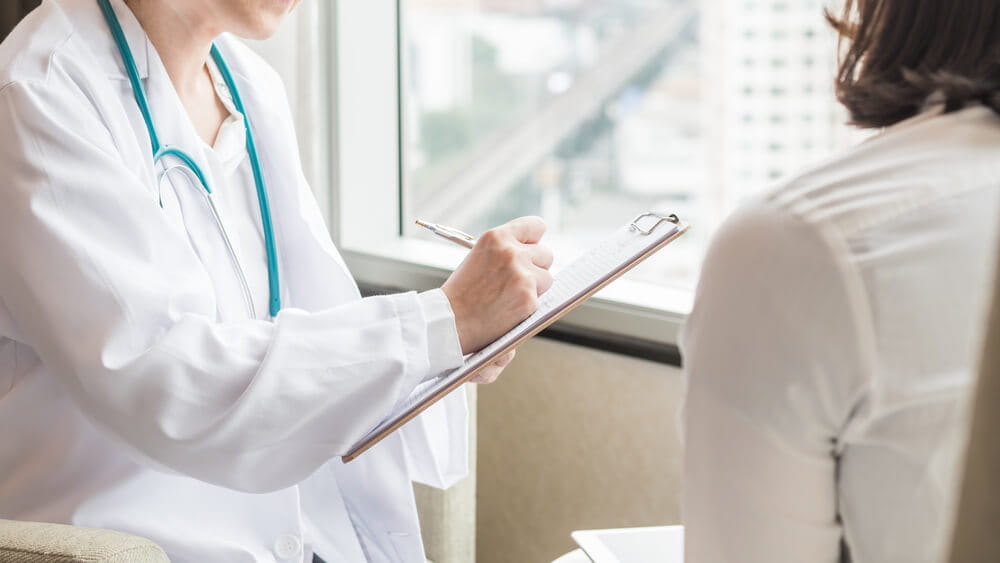A bone density test can help your doctor predict your risk of getting bone fractures and detect osteoporosis, according to Medlineplus.gov.
Women age 65 or older are more likely to get osteoporosis, and Medlineplus.gov notes you are at risk if you:
- Have broken a bone from a fall
- Have a family history of osteoporosis
- Have experienced early menopause
- Have chronic kidney disease, eating disorders or chronic rheumatoid arthritis
- Have a “significant loss of height due to compression fractures of the back”
- Take prednisone or methylprednisolone every day for more than 3 months
- Have a history of hormone treatment for breast cancer
- Take thyroid hormone replacements
- Drink three or more glasses of alcohol per day (on most days)
- Smoke
Your health care provider can perform a bone density test in several ways, and the most common way is with a dual-energy x-ray absorptiometry (DEXA) scan, which uses low-does x-rays, according to Medlineplus.gov. Central DEXA and peripheral DEXA (p-DEXA) are the two types of DEXA scans.
Contact your doctor for more information about bone density screenings and your risk for osteoporosis.




